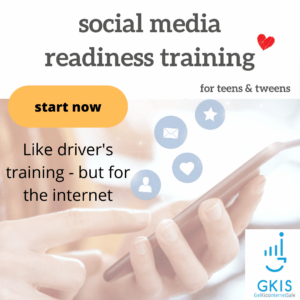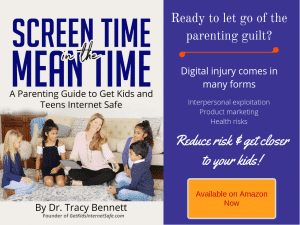
How to Play the Game on Twitter
Although athletics are highlighted on many social media platforms, Twitter leads the pack for athletes to showcase their talent. Unfortunately, it’s also a place for people to troll, vent, and attack an athlete’s performance. While the public discusses their opinions of statistics and abilities, those who may impact your future watch the fray silently.
Often college offers are announced and celebrated on Twitter, leaving those who were passed up feeling shocked and demoralized. To better understand what that is like to have your talent showcased on Twitter, I recently interviewed a college quarterback named John*.
John was a 3-star athlete, which translates into being in the top ten percent of high school quarterbacks in the nation.[1] In high school, many college coaches were competing to recruit him. Other quarterbacks were in the same boat, all on Twitter tracking stats and who was tweeting about whom. He told us that a range of emotions was at play, elaborating, “When you see the tweets on how good another quarterback is, how he is ranked higher than you, and how he got his scholarship, those tweets make you more hungry to win.”
How to Make Twitter Work for You
We asked John if, alongside motivation, he often felt despair, But John insisted that, in his case, he didn’t consider Twitter to be all that bad. “It was a great way for me to reach out to schools, to put up my stats, and to get positive feedback from prospective coaches in the off-season. If I had a good game, I made sure to send it to colleges the next day and post it for others to see.” He said that when he wants news, all he has to do is look to the internet. When I asked about what would happen if he had a bad game, he chuckled and said, “When you have a bad game, people will post it for you. No need to worry about that.” Unfortunately, not every child can always take the negative and turn it into a positive. Our Screen Safety Essentials Course is a great way for your teen to learn to help them think before they tweet.
Everyone’s a Critic
When speaking with John about Twitter and college, he said that things change from high school to college. “
According to cbssports.com, in a single sports season up to eight billion dollars are wagered.[2] To give a perspective of what eight billion is, that is what Instacart was valued at in 2019.[3] The college football season is about four months long, with the regular season being 12 games per team.
John elaborated, “If I had a bad game, it wasn’t uncommon for me to delete the Twitter app because I was already beating myself up enough for the loss. I didn’t need to hear it from people that don’t play the game. Breaks off social media are great because you have to kinda get in check with your reality.” I asked about tweets in high school hurting him or anyone he knew at the time. He responded, “Most people are pretty forgiving to high school kids as long as it’s nothing really bad. Your coaches care about you and do help guide you. If you make a mistake and tweet something bad, your high school coach and any coach interested in you at the college level will usually talk to you. These things I have seen have usually been a learning experience. However, when you get to the college level, that all changes. They expect you to be an adult and act accordingly.” For example, in 2015, professional quarterback Josh Allen was projected to be the first draft pick of the NFL until an old Tweet of his from high school days resurfaced. His status dropped to seventh, translating into a lot of money lost. To help prepare your tween or teen on how to handle such situations, GKIS has a great Social Media Readiness Course.
Overall, the athlete we spoke to loved playing and everything about it. John said there were times that weren’t as much fun but he took what was given to him and made it work for him. He turned a mean tweet into motivation to work harder than the next guy. When asked what advice he’d give a young athlete, he said, “Don’t waste energy on something that is out of your control. It’s only going to bring you down.”
Other Tips for How to Avoid the Pitfalls
- Before you allow your tween or teen to go on social media, require that they take our Social Media Ready Course. This information optimizes the chances that they’ll not fall victim to digital injuries and maintain the best psychological wellness practice.
- Review with your teen how to promote themselves and build a positive brand and how to avoid negativity and online conflict. We offer these strategies in our Screen Safety Essentials Course.
- Detox from social media on occasion to regroup and gain perspective.
- Keep good company with coaches, friends, and family. Accept support from those who support you on and off the field
- Reframe negativity online so it motivates you. Don’t let it take a negative hold on your attitude toward the same, your competitors, or yourself.
If you found this blog article interesting, please check out some of our other GKIS articles about Twitter.
The GKIS Sensible Parent’s Guide to Twitter
Showcasing Child Talent Online Leads to Exploitation and Scams

I’m the mom psychologist who will help you GetKidsInternetSafe.
Onward to More Awesome Parenting,
Tracy S. Bennett, Ph.D.
Mom, Clinical Psychologist, CSUCI Adjunct Faculty
GetKidsInternetSafe.com
*John is a fictional name to allow the athlete interviewed to remain anonymously
Work Cited
[1] Nusser, J. (2018, December 15). Seeing stars: 247Sports, Rivals, and ESPN star-rating systems explained. Coug Center. https://www.cougcenter.com/wsu-football-recruiting/2013/2/5/3956800/rivals-scout-espn-247-star-rating-system-national-signing-day
[2] Dodd. D. (2022, November 17). College sports’ overlooked gambling issue: Improprieties being ignored as betting soars nationwide. Cbssports.com. https://www.cbssports.com/college-football/news/college-sports-overlooked-gambling-issue-improprieties-being-ignored-as-betting-soars-nationwide/
[3] Gebel, M. (2022, November 17). 30 companies worth at least $1 billion that didn’t exist 10 years ago. Businessinsider.com. Retrieved December 3, 2019, from https://www.businessinsider.com/companies-unicorns-worth-1-billion-didnt-exist-10-years-ago-2019-11
Photo Credits
[1] Photographer unknownhttps://www.pexels.com/photo/2-football-player-running-after-person-holding-football-during-daytime-in-shallow-focus-photography-159571/
[2]Photographer Unknownhttps://www.pexels.com/photo/red-blue-and-yellow-textile-5417837/
[3] Photographer Unknownhttps://www.stockvault.net/photo/119697/usd-bills-close-up#










